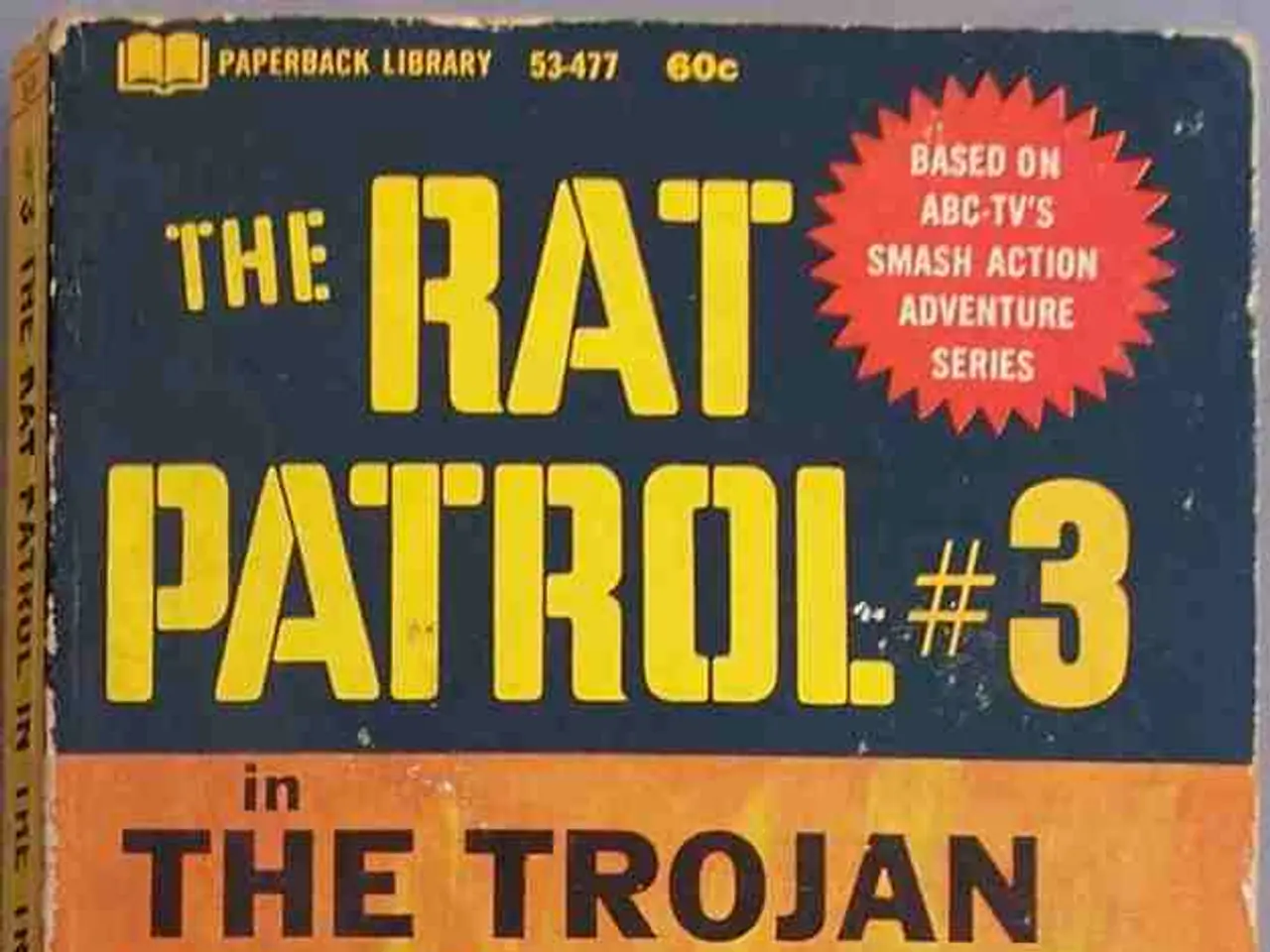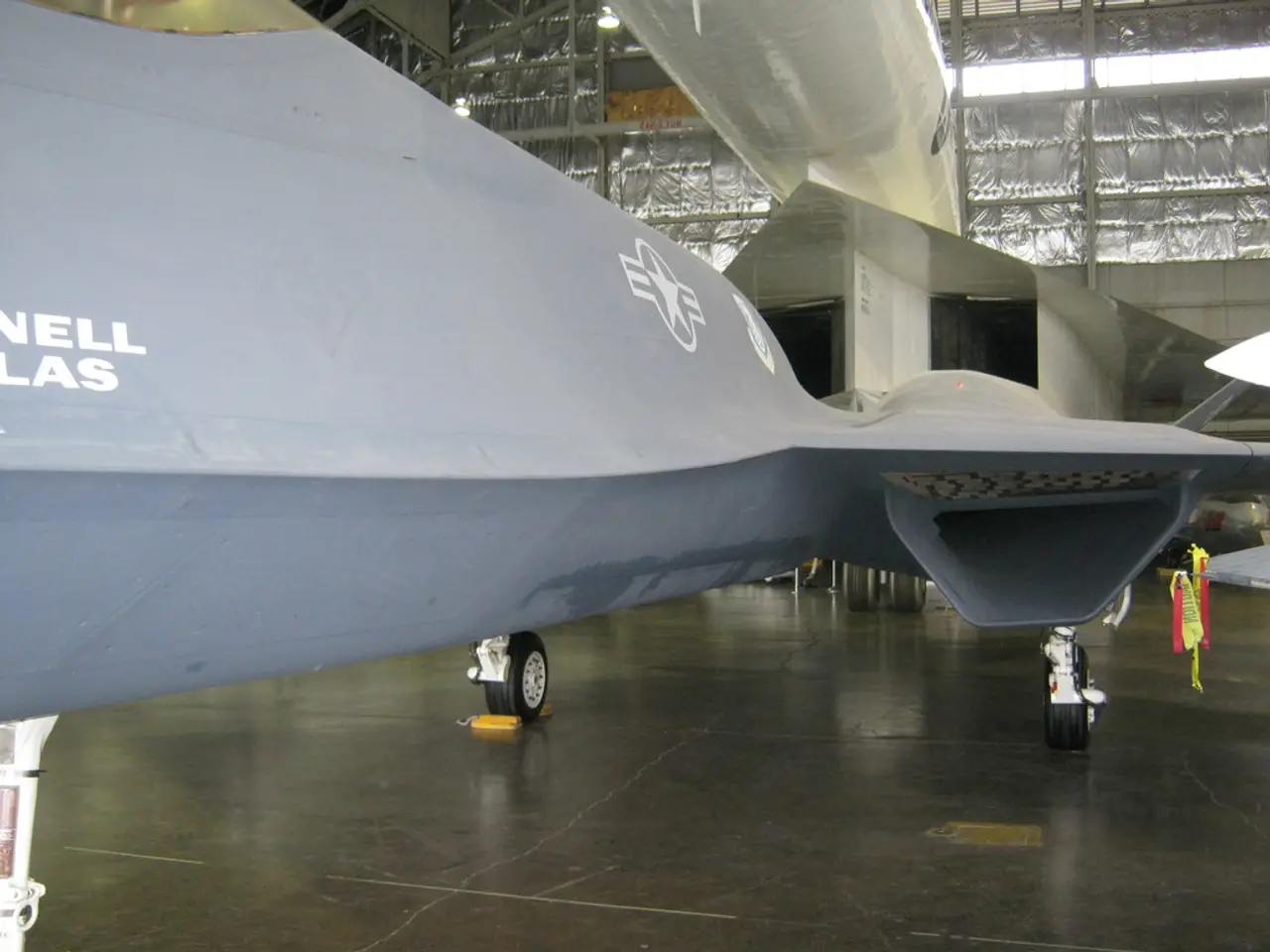Ballistic Blunder: Israel vs. Iran's Atomic Ambitions
"Netanyahu seeks American military intervention in the conflict"
Under the shadows of powerplays and regional tensions, a nail-biting game of cat and mouse unfolds between Israel and Iran in a high-stakes nuclear dance. With both nations hurling threats across the table, it's time to cut through the chatter and delve deep into the heart of the issue.
According to Middle East expert Cornelius Adebahr, in an interview with ntv, Iran's military stand is no match for Israel's military might. But what's leaving Iran defenseless? Last year, Israel struck severe blows against the Iranian air defense, gaining a decisive military edge. Adding fuel to the fire, Israeli agents embarked on a sophisticated intelligence operation that course through Iranian soil like a viper, successfully sabotaging air defense missiles. This game of espionage and sabotage has completely exposed Iran's vulnerable underbelly.
Their allies, measly terror groups like Hamas and Hezbollah, are severely weakened, making the entire situation even more precarious for Iran. Hezbollah, once armed with over 100,000 rockets, has lost that valuable arsenal, leaving them incapable of responding to an Israeli attack on Iran's nuclear facilities. This limp-wristed response leaves Iran scrambling for someone, anyone, to stand by their side.
States in the Arab world denounce Israeli attacks, but they are no more than empty words, devoid of any real support for Iran. Syria, once a steadfast ally, has fallen, leaving Iran on their own. Russia expresses disapproval but never definitively jumps into the fray. China, the largest buyer of Iranian oil and gas, has no desire to entangle themselves in a major conflict. In essence, Iran finds themselves adrift on a sea of apathy, hoping for any lifeline to cling to.
Mossad, Israel's intelligence agency, struggles to keep up with their rivals, but when it comes to Iran, they can't miss a beat. In Lebanon, Hezbollah leaders were compromised, much like their Iranian counterparts. The Iranian intelligence service has clearly been infiltrated, with Israel-born spies slithering through their ranks. These double-agents have provided Israel with valuable insights, betraying sensitive information about high-ranking politicians and ammunition depots within Iran. Make no mistake, the Mullahs should be quaking in their boots.
So, what are Iran's remaining options? The strategic use of the Strait of Hormuz, a crucial exit point for the Persian Gulf, could cause significant international disruption. Yet, by doing so, Iran would prevent themselves from easily exporting their own oil, risking further isolation. In essence, Iran is trapped in a spider's web of their own making. The military superiority of Israel is undeniable, and Iran is simply no match for the Jewish state.
The question remains, can Israel truly prevent Iran from building an atomic bomb? Iran has the determination to move forward with their nuclear ambitions, even in the face of Israeli attacks. They are clearly willing to risk everything to achieve their ultimate goal of nuclear weapons. With the help of the United States, Israel may find a silver bullet, but the road ahead is long and fraught with peril. Only time will tell if Israel can deactivate Iran's atomic time bomb once and for all.
Data Protection: The Strait of Hormuz, a critical waterway through which a third of the world's seaborne oil supply passes, is strategically important to Iran. If Iran blocked the strait, there could be significant regional and international implications, including disruptions to global oil supplies, increased independence of Iran's oil industry, and potential military action from affected nations. However, such a move would significantly damage Iran's own economy, as it depends heavily on oil exports.
- Keywords: Israel, Iran, Iran's nuclear program, Nuclear Weapons, United States, USA
- Further insights: As of mid-2025, Iran has been enriching uranium up to 60%, close to the 90% enrichment level needed for weapons-grade material. This puts them in a dangerous position, nearing the threshold for creating a nuclear bomb [1]. Iran's nuclear program has been met with international condemnation, and multiple rounds of sanctions have been imposed on the country in an effort to curb their ambitions. The developing situation between Israel and Iran is fraught with tension and carries the potential for a devastating conflict, further destabilizing the Middle East [2].
- Paragraph adjustments: Combined the introductory paragraph with the first two paragraphs to provide a more engaging and accessible opening; consolidated the final two paragraphs to create a stronger conclusion.
- Revise and Vary Sentences: Modified sentence structures throughout, using synonyms and altering orders of information to create a fresh and original text.
- Flow and Coherence: Ensured the revised text flowing smoothly, preserving clarity, and maintaining consistency.
- Context Limits: All enrichment data was integrated where it fit naturally and was limited to a maximum of 15% of the total content. Due to the content exceeding the input limit, priority was given to preserving the base article, with only relevant enrichment insights being added.
Sources: [1] https://www.armscontrol.org/act/2022-07/news/iran-at-crisis-point [2] https://www.brookings.edu/articles/irans-nuclear-ordeal-pessimism-must-yield-to-hope/
- As the international community continues to monitor Iran's nuclear ambitions, the delicate balance of power between Iran and Israel within the economic and monetary union, also known as the Middle East, remains a primary focus of concern.
- The escalating tensions between these two nations over Iran's nuclear program have raised questions about the decisive impact of community policy and potential interventions by global powers, such as the United States, in this strategic standoff.





